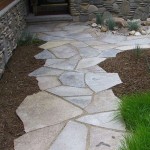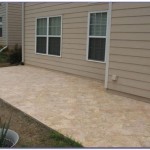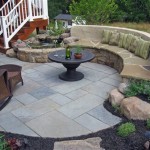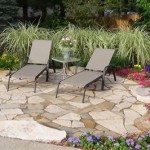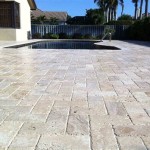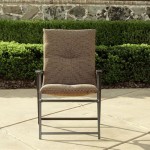Choosing The Right Sliding Patio Door Roller Replacements
Sliding patio doors offer a seamless transition between indoor and outdoor spaces, providing natural light and ventilation. However, the smooth operation of these doors relies heavily on the condition of their rollers. Over time, rollers can wear down, corrode, or become damaged, leading to difficulty in opening and closing the door. When this occurs, replacing the rollers is a necessary step to restore functionality and prevent further damage to the door frame and track. Selecting the correct replacement rollers is crucial for ensuring a long-lasting and effective repair. This article provides a comprehensive guide to choosing the right sliding patio door roller replacements, considering various factors such as roller type, material, size, and compatibility.
Identifying the Correct Roller Type
The first step in choosing the right replacement rollers is identifying the type of rollers currently installed in the patio door. There are several common types of sliding patio door rollers, each designed with specific features and for particular door styles. Identifying the correct type ensures that the replacement rollers will fit properly and function as intended. Common roller types include:
Edge Rollers: These rollers are typically found in older patio door models. They feature a wheel attached to a bracket that sits on the edge of the door. Edge rollers are often adjustable, allowing for fine-tuning of the door's height and alignment. Due to the age of doors using these rollers, replacements may be harder to find, requiring careful measurement and research.
Mortise Rollers: Mortise rollers are recessed into the bottom of the door within a mortise, a specifically shaped cavity. These rollers are generally concealed, resulting in a cleaner aesthetic. They come in various sizes and configurations, necessitating precise measurements to ensure compatibility. Mortise rollers are frequently adjustable via screws or other mechanisms.
Tandem Rollers: As the name suggests, tandem rollers feature two wheels per roller assembly. This design distributes the door’s weight more evenly, making them suitable for heavier patio doors. Tandem rollers are known for their durability and smooth operation, particularly in larger doors.
Spring-Loaded Rollers: These rollers incorporate a spring mechanism that allows for slight vertical movement. This movement helps the door glide smoothly over minor imperfections in the track. Spring-loaded rollers provide a more forgiving operation and can extend the life of both the rollers and the track.
To determine the roller type, visually inspect the existing rollers. If possible, remove one roller to examine it closely. Take note of its shape, size, and any distinguishing features, such as spring mechanisms or multiple wheels. Consulting the original door manufacturer's specifications or documentation can also be helpful in identifying the correct roller type.
Evaluating Roller Material and Durability
The material composition of the roller significantly impacts its durability, performance, and lifespan. Choosing the right material ensures that the replacement rollers can withstand the weight of the door, resist wear and tear, and provide smooth operation for an extended period. Common materials used in sliding patio door rollers include:
Steel: Steel rollers are known for their strength and durability. They can withstand heavy loads and resist deformation under pressure. Steel rollers are often used in heavier doors and high-traffic areas. However, steel rollers are prone to corrosion, particularly in coastal environments or areas with high humidity. Regular lubrication and maintenance are essential to prevent rust and ensure smooth operation.
Nylon: Nylon rollers offer a good balance of durability and smoothness. They are resistant to corrosion and can operate quietly. Nylon rollers are suitable for a wide range of patio doors, from lightweight to moderately heavy. While durable, nylon rollers are not as strong as steel and may wear down more quickly under heavy loads.
Delrin: Delrin is a type of engineered plastic that is known for its high strength, stiffness, and dimensional stability. Delrin rollers offer excellent wear resistance and low friction, resulting in smooth and quiet operation. They are also resistant to moisture and many chemicals, making them suitable for various environments. Delrin rollers are often used in high-end patio doors due to their superior performance and longevity.
Stainless Steel: Stainless steel rollers combine the strength of steel with the corrosion resistance of stainless steel. They are an excellent choice for coastal areas or environments where moisture is a concern. Stainless steel rollers are more expensive than other types of rollers but offer superior durability and longevity.
When selecting roller material, consider the weight of the door, the environment in which it is located, and the desired lifespan of the rollers. For heavy doors or high-traffic areas, steel or stainless steel rollers may be the best choice. For lighter doors or environments where noise is a concern, nylon or Delrin rollers may be more suitable.
Measuring for Proper Size and Fit
Accurate measurements are essential for ensuring that the replacement rollers fit properly within the door frame and operate smoothly on the track. Incorrectly sized rollers can cause the door to bind, scrape against the frame, or fail to roll at all. The following measurements are crucial when selecting replacement rollers:
Roller Diameter: The diameter of the roller wheel is a critical measurement. Use a caliper or ruler to measure the diameter of the existing rollers. It is important to measure accurately, as even slight variations in diameter can affect the door's performance. The new rollers must have the same diameter as the old ones to ensure proper contact with the track. If the rollers are significantly worn, measure the roller housing and compare to available replacement parts.
Roller Width: The width of the roller wheel or the overall width of the roller assembly is also important. Measure the width of the existing rollers to ensure that the replacement rollers will fit within the track. If the rollers are too wide, they may bind against the sides of the track. If they are too narrow, they may not provide adequate support for the door.
Housing Dimensions: The dimensions of the roller housing, including its length, width, and height, are crucial for mortise rollers and other recessed roller types. Measure the dimensions of the existing roller housing to ensure that the replacement housing will fit within the mortise. Pay particular attention to the height of the housing, as this can affect the door's alignment and clearance.
Mounting Hole Locations: If the rollers are attached to the door frame with screws or bolts, measure the distance between the mounting holes. The replacement rollers must have the same mounting hole locations to ensure that they can be securely attached to the door. In some cases, adjustable rollers may allow for slight variations in mounting hole locations.
Before purchasing replacement rollers, double-check all measurements to ensure accuracy. If possible, bring the old rollers with you to the hardware store or provide the measurements to an online retailer. This will help ensure that you select the correct size and fit for your sliding patio door.
Beyond these key considerations, other factors can influence the selection of replacement rollers. The adjustability of the roller is beneficial, allowing for fine-tuning of the door's alignment. The presence of sealed bearings within the roller assembly can improve the smoothness of operation and extend the roller's lifespan. Finally, considering the overall cost of the replacement rollers in relation to their quality and durability is essential for making an informed decision. By carefully evaluating these factors, homeowners can select the right sliding patio door roller replacements and restore the smooth, reliable operation of their doors.

Choosing Tracks For Aluminium Sliding Doors Accent Windows

How To Choose The Right Sliding Door Roller System

Importance Of Choosing The Right Hardware For Windows Doors

Discover Why Choosing The Right Garage Door Rollers Matters

Choosing The Right Sliding Door Hardware For Your Project Kn Crowder

Modern Blinds For Sliding Glass Doors A Guide

Garden Doors Vs Sliding Patio Eco Choice Windows

Choosing The Right Number Of Doors And Track System Sliding Robe

Security Parts Choosing The Right Components For Sliding Door Safety Udh Doors Hardware

7 Considerations In Choosing The Right Glass Door Singapore Midas Contractor Direct Aluminum
Related Posts

